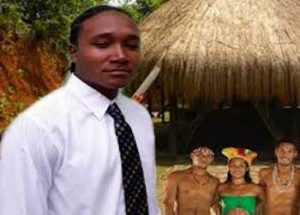
*The Kalinago community is celebrated on this date in 1500. Also known as the Island Caribs or simply Caribs, they are indigenous people of the Lesser Antilles in the Caribbean.
They may have been related to South America's Mainland Caribs (Kalina) but spoke an unrelated language known as Island Carib. They also spoke a pidgin language associated with the Mainland Caribs. At the time of Spanish contact through the Middle Passage, the Kalinago were one of the dominant groups in the Caribbean, which owes its name to them. They lived throughout northeastern South America, Trinidad and Tobago, Barbados, the Windward Islands, Dominica, and possibly the southern Leeward Islands.
Historically, it was thought their ancestors were mainland peoples who had conquered the islands from their previous inhabitants, the Igneri. However, linguistic and archaeological evidence contradicts the notion of mass emigration and conquest; the Kalinago language appears not to have been Cariban but, like that of their neighbors, the Taíno. Irving Rouse and others suggest that a smaller group of mainland peoples migrated to the islands without displacement, eventually adopting the local language but retaining their traditions of South American origin. In the early colonial period, the Kalinago had a reputation as warriors who raided neighboring islands.
According to the Spanish conquistadors, the Kalinago were cannibals who regularly ate roasted human flesh. Evidence of the taking of human trophies and the ritual cannibalism of war captives among Carib and other Amerindian groups, such as the Arawak and Tupinamba. Today, the Kalinago and their descendants live in the Antilles, notably on the island of Dominica. The Garifuna, who share common ancestry with the Kalinago, also live principally in Central America.